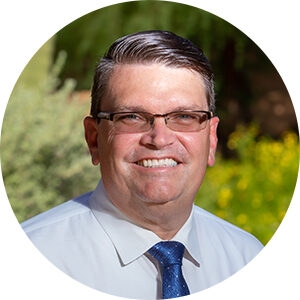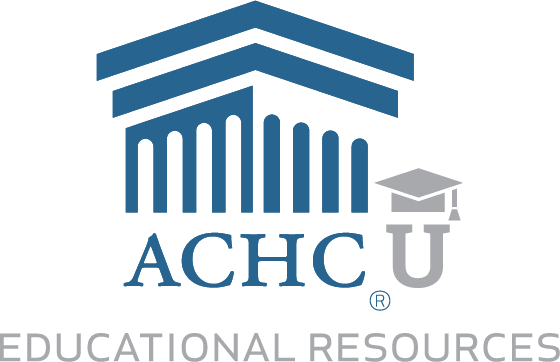MASTER CLASS SERIES
Guidance from Top Industry Experts
Learn from the best.
Industry specialists from across the nation lead master classes designed to take your organization to the next level.
Each master class series is designed to give you a set of practical ideas and actions to improve your organization, and you’ll also gain access to a master educator to answer your questions at the end of each session.
Live Virtual Classes
-
Workplace Violence Master Class Series
$375
Workplace violence is an escalating risk in hospitals, affecting both urban and rural healthcare facilities. ACHC wants to empower you and your organization to be proactive, not reactive, regarding this urgent threat. This master class series gives your organization the tools to be ready and fits into your busy schedule with live and on-demand options.- Gain actionable knowledge to safeguard staff, patients, and community.
- Prepare a game plan with practical strategies for prevention, response, and recovery.
Designed for Your Busy Schedule
Each one-hour session consists of a presentation followed by time for Q&A. Attend live and/or view the recordings at your convenience. Access to on-demand recordings will open after each session and will be available until August 2025.
Includes Continuing Education Credits for Facilities and Clinical Staff
- Earn up to three continuing education credits toward fulfillment of the requirements for a Certified Healthcare Facility Manager (CHFM) designation through the American Society for Health Care Engineering (ASHE).
- Earn up to three nursing contact hours through the Virginia Nursing Association (VNA).

Taught by Richard L. Parker, MBA, CHFM, FACHE, FASHE, ACHC Associate Director, Life Safety and Physical Environment.
Richard has over 25 years’ experience in engineering, construction, security, environmental services, food and nutrition services, patient transport, laundry and linen services, and communications in hospital settings. He is a Fellow of the American College of Healthcare Executives (FACHE) and a Fellow of the American Society for Healthcare Engineering (FASHE), for which he is an active participant in the Arizona chapter.
Class 1 | On Demand (recorded August 2024)
Risk and Environmental Risk Assessment
This session will identify standards in the accreditation manual that address workplace violence and the risk assessment process, including the environmental risk assessment.
- Focus on recognizing organizational and environmental risks that may exist within an organization.
- Organizational risks include interdepartmental risks, patient volumes, specific high-risk areas, departmental processes, and timing factors.
- Environmental risks encompass internal areas needing additional surveillance, blind spots, lighting, and exit routes, plus external risks such as parking areas, signage, and landscaping.
Class 2 | On Demand (recorded August 2024)
Mitigation Strategies
This session will identify standards in the accreditation manual that address workplace violence and the mitigation process.
- Identify mitigation strategies that include passive and active approaches to reducing risks identified in the risk assessment process.
- Review the four types of workplace violence as defined by the National Institute for Occupational Safety and Health (NIOSH).
- Define what a workplace violence committee is and how such a committee may assist hospitals with revealing staff concerns and providing recommendations to improve the program.
Class 3 | On Demand (recorded August 2024)
Education and Training for Staff and Volunteers
This session will identify standards in the accreditation manual that address workplace violence and education strategies.
- Demonstrate the importance of educating staff, volunteers, and leaders on identifying patients at risk, recognizing environmental risk factors, and implementing mitigation strategies.
- Discuss the importance of having a documented recovery plan to care for staff, patients, and visitors if an event occurs.


